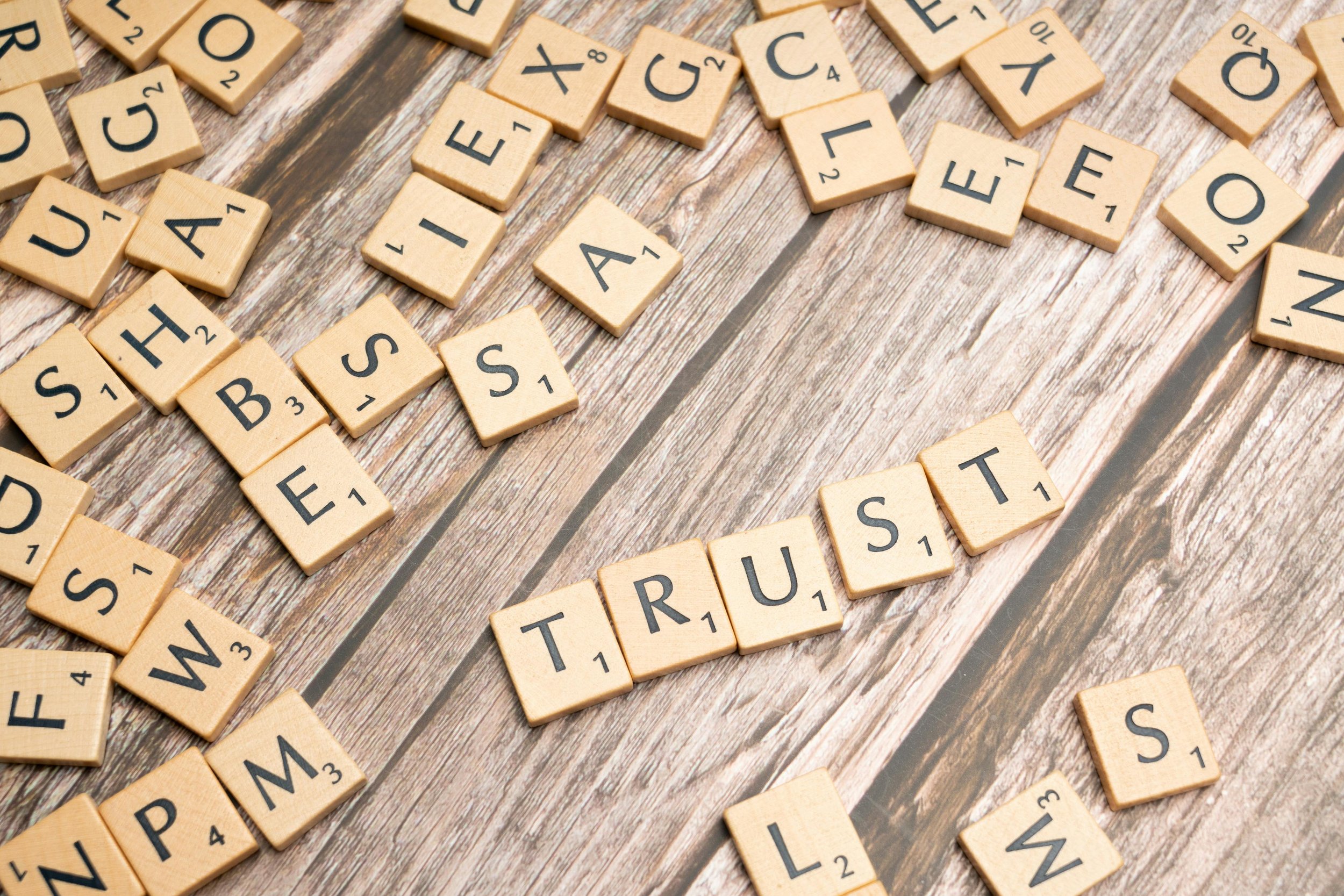Unraveling Trust
Trust, a cornerstone of human interaction, shapes the way we navigate the world and connect with others.
In this blog, we'll explore the nuances of trust — from its delicate beginnings to its profound impact on our lives. Join us on a journey of self-discovery and relational growth as we unravel the mysteries of trust and uncover the keys to fostering healthy, meaningful connections.
Have you ever been burned before? If so, you know it's not easy to dip your toe back in sometimes; it can feel like diving headfirst into a fog of uncertainty. But let me ask you this: Can you recall a time when you felt genuine trust with someone? What made that experience positive?
Even when we've made mistakes and need to own up to them, it's comforting to know we have someone in our corner. They may not agree with our actions or decisions, but they stand by us. But what about the flip side? Can you think of a time when you felt betrayed or mistrusted? What made that experience so painful?
For me, it often boils down to a lack of understanding. It feels like the other person didn't grasp what I needed, what was important to me, or worse, they disregarded it altogether. But it's not just about identifying the problem; it's about knowing how to repair and navigate these relationships healthily.
So, let's talk about trust. It's a fundamental aspect of all human relationships, starting from the moment we're born and continuing throughout our lives. But, for many, the word "trust" may evoke more associations with pain than with gratitude or good memories — and it shouldn't be that way. Trust should mean having someone's support.
However, amidst the confusion, we've all developed defense mechanisms to protect ourselves from potential wounds or betrayals. We've built walls around us, creating a fortress of protection. But we also know that true growth and fulfillment lie beyond those walls, requiring us to venture into the unknown — albeit cautiously.
Interestingly, the word "trust" in the Old Testament means feeling carefree — an antithesis to how many of us actually feel. Ideally, trust should allow us to let down our guard and be ourselves without fear of judgment or harm.
According to psychoanalyst Eric Erickson, the development of trust versus mistrust begins in infancy and significantly shapes our future relationships. But many of us may have learned early on not to trust, leading to a perpetual cycle of skepticism and self-protection.
Brené Brown delves into the anatomy of trust, emphasizing that it's built on small, everyday moments rather than grand gestures. These "penny jar moments" are what truly lay the foundation of trust, as they demonstrate reliability, vulnerability, and empathy.
John Gottman further underscores the importance of consistent, trustworthy actions in fostering trust. It's not just about what we do, but also how it's perceived and acknowledged by others. Trust is a reciprocal process — it requires both parties to actively participate in rebuilding and maintaining it.
For example, during my training, I learned that trust is a result of trustworthy actions. Trust doesn't arise out of thin air; it's built over time through consistently trustworthy actions. If you demonstrate reliability in your actions, people will naturally trust you.
Brown and Gottman highlight the significance of "penny jar moments" in building trust. These are the small, everyday moments where we demonstrate reliability, vulnerability, and empathy. For instance, asking for help when we need it, sharing our feelings, and being there for others in tough times. These moments may seem insignificant, but they're crucial for strengthening the bonds of genuine trust in our relationships.
A powerful example of this is when we recognize and value our partner's emotional needs, even when it requires sacrifice on our part. For instance, if our partner is going through a tough time, we may set aside our own desires and be there for them, offering support and comfort. This kind of mutual sacrifice and acknowledgment of each other's needs builds trust and strengthens our relationship over time.
Brené Brown further teaches us something really important about trust. I personally struggle with this, and I believe many people do too. She says: We trust someone because they ask for help when they need it, which means they're vulnerable enough to admit they need help.
How many of us are better at offering help than asking for it? We don't really want to expose ourselves in that way because it's hard. But here's the thing: trusting someone who is capable of admitting their vulnerability is a powerful sign of mutual trust. It demonstrates courage and authenticity, creating a solid foundation for mutual trust. It's an act of emotional reciprocity, where both sides are willing to open up and trust each other.
These moments of vulnerability are crucial for building bonds of genuine trust because they show that we're willing to support each other, not just in the good times but also in the tough times. So, we should remember that asking for help when we need it is a demonstration of strength, not weakness. And by trusting someone who's willing to admit their vulnerability, we're building a relationship based on authenticity and mutual acceptance.
In the next blog, we'll delve deeper into the components of trust and explore how we can cultivate it in our relationships. Until then, remember those small moments that contribute to building trust — they're more significant than we often realize.
See you next week!

